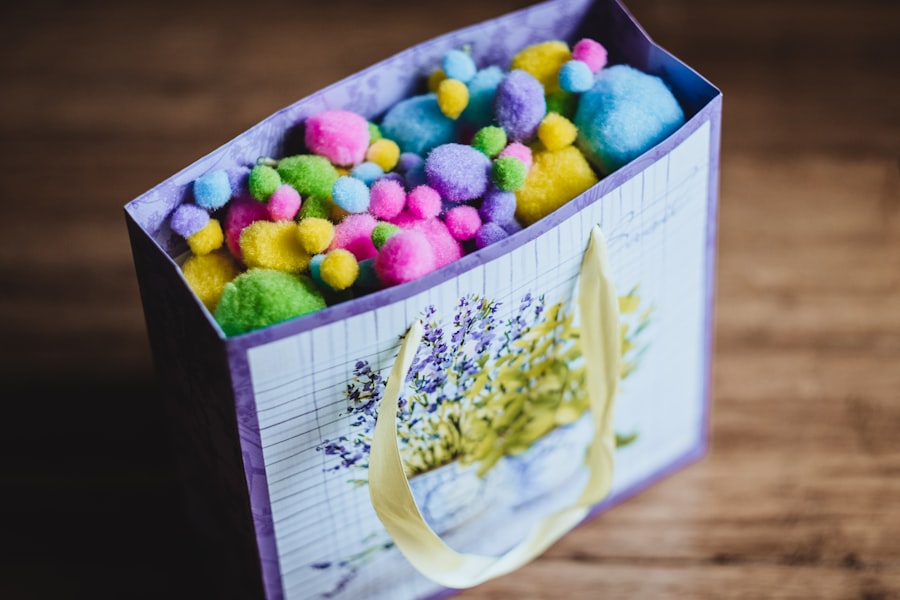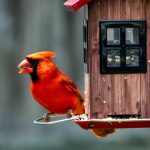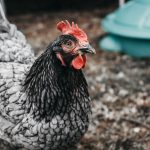Chick starter is a specialized feed formulated to meet the nutritional requirements of young chicks from hatching to approximately 8-10 weeks of age. This critical growth period demands a diet rich in protein, vitamins, and minerals to support rapid development. The feed provides essential nutrients for healthy growth, promoting strong bones, healthy feathers, and overall well-being.
Proper nutrition during this stage is crucial for laying a solid foundation for the chicks’ future health. Chick starter is available in two forms: medicated and non-medicated. Medicated chick starter contains a small amount of antibiotic to prevent coccidiosis, a common and potentially fatal intestinal disease in young chicks.
Non-medicated chick starter lacks this medication and is suitable for chicks not at risk of coccidiosis. Both types provide the necessary nutrients for healthy growth and development. The choice between medicated and non-medicated starter depends on the specific needs of the flock.
Table of Contents
Key Takeaways
- Chick starter is a specially formulated feed for young chicks, providing essential nutrients for healthy growth and development.
- Chicks should be fed chick starter for the first 6-8 weeks of their life to ensure proper nutrition and growth.
- Signs that chickens are ready to transition from chick starter include feather development, increased activity, and a decrease in feed consumption.
- Prolonged use of chick starter can lead to obesity and other health issues in growing chickens.
- Transitioning from chick starter to grower feed should be done gradually over a period of 1-2 weeks to avoid digestive upset.
- Tips for a smooth transition include mixing chick starter and grower feed, providing clean water, and monitoring the chickens’ behavior and appetite.
- In conclusion, transitioning from chick starter to grower feed is an important step in the development of healthy chickens, and should be done with care and attention to their needs.
The Recommended Duration for Chick Starter
Optimal Growth and Development
The recommended duration for feeding chick starter is typically around 8-10 weeks. During this time, chicks are in the critical stage of rapid growth and development, and they require a diet that is high in protein and essential nutrients to support their needs. It is important to provide chicks with the right nutrition during this stage to ensure that they grow into healthy and strong adult chickens.
The Risks of Inadequate or Excessive Feeding
Feeding chick starter for the recommended duration sets the stage for optimal growth, strong bones, and healthy feathers. Feeding chick starter for too short a duration can result in stunted growth and developmental issues, while feeding it for too long can lead to potential health risks associated with an overly rich diet. It is important to follow the recommended duration for feeding chick starter to ensure that chicks receive the right balance of nutrients for their growth and development.
Transitioning to a New Feed
As they approach the 8-10 week mark, it is important to start transitioning them to a different type of feed to meet their changing nutritional needs.
Signs that Chickens are Ready to Transition

As chicks approach the 8-10 week mark, there are several signs that indicate they are ready to transition from chick starter to grower feed. One of the most obvious signs is their physical appearance. Chicks that are ready to transition will have developed their adult feathers and will look more like miniature versions of adult chickens.
They will also be more active and energetic, showing increased interest in exploring their surroundings and foraging for food. Another sign that chicks are ready to transition is their appetite. As they grow, their nutritional needs change, and they may start to show less interest in chick starter and more interest in other types of feed.
They may also start to exhibit behaviors such as pecking at the ground or scratching, which are natural behaviors associated with foraging for food. Additionally, if you notice that your chicks are consistently leaving behind uneaten chick starter, it may be a sign that they are ready for a different type of feed.
Potential Risks of Prolonged Use of Chick Starter
While chick starter is essential for providing young chicks with the nutrients they need for healthy growth and development, there are potential risks associated with prolonged use of chick starter. One of the main risks is that chick starter is formulated to be high in protein to support rapid growth during the early stages of life. However, as chicks approach the 8-10 week mark, their growth rate slows down, and they require a different balance of nutrients to support their changing needs.
Feeding chick starter for too long can result in an overly rich diet, which can lead to health issues such as obesity and skeletal problems. Another potential risk of prolonged use of chick starter is that it can lead to an imbalance of nutrients in the diet. Chick starter is formulated to provide specific levels of protein, vitamins, and minerals that are tailored to the needs of young chicks.
Feeding chick starter for an extended period can result in an excess of certain nutrients, which can have negative effects on the health of the growing chicks. It is important to be mindful of the potential risks associated with prolonged use of chick starter and to transition chicks to a different type of feed at the appropriate time.
Transitioning from Chick Starter to Grower Feed
Transitioning from chick starter to grower feed is an important step in meeting the changing nutritional needs of growing chicks. Grower feed is formulated to provide a balanced diet that supports steady growth and development as chicks transition into adolescence. It contains lower levels of protein than chick starter but still provides essential nutrients such as vitamins and minerals to support healthy growth.
When transitioning from chick starter to grower feed, it is important to do so gradually to allow chicks’ digestive systems to adjust to the new feed. To transition from chick starter to grower feed, you can start by mixing small amounts of grower feed into the chick starter and gradually increasing the proportion of grower feed over the course of a week or two. This gradual transition allows chicks’ digestive systems to adapt to the new feed without causing any digestive upset.
It is important to monitor your chicks during this transition period and ensure that they are eating and drinking normally. Once they have fully transitioned to grower feed, you can continue to provide them with this feed until they reach maturity.
Tips for a Smooth Transition

Gradual Transition for a Seamless Change
Transitioning from chick starter to grower feed can be a smooth process with the right approach. To ensure a seamless change, it is essential to transition gradually. Start by mixing small amounts of grower feed into the chick starter and gradually increase the proportion of grower feed over the course of a week or two.
Monitor Behavior for a Successful Transition
Keep an eye on your chicks’ behavior during the transition period. Look for signs that they are adjusting well to the new feed, such as normal eating and drinking habits, as well as active and energetic behavior.
Provide Optimal Conditions for a Smooth Transition
Ensure that your chicks have access to plenty of fresh, clean water during the transition period. Proper hydration is essential for supporting their digestive systems as they adjust to the new feed. Additionally, monitor your chicks’ weight gain during the transition period. A smooth transition should result in steady weight gain, indicating that they are receiving the right balance of nutrients from the new feed.
By following these tips, you can help ensure a smooth transition from chick starter to grower feed for your growing chicks, setting them up for continued healthy growth and development.
Conclusion and Final Considerations
In conclusion, chick starter plays a crucial role in providing young chicks with the essential nutrients they need for healthy growth and development during their early stages of life. However, it is important to follow the recommended duration for feeding chick starter and be mindful of the signs that indicate when chicks are ready to transition to a different type of feed. Prolonged use of chick starter can pose potential risks associated with an overly rich diet and an imbalance of nutrients, highlighting the importance of transitioning chicks to grower feed at the appropriate time.
Transitioning from chick starter to grower feed should be done gradually to allow chicks’ digestive systems to adjust to the new feed without causing any digestive upset. By following the recommended duration for feeding chick starter and transitioning chicks to grower feed at the right time, you can help ensure that your growing chicks receive the right balance of nutrients for continued healthy growth and development. With proper care and attention, you can set your growing chicks up for success as they transition into adolescence and beyond.
If you’re wondering how long to keep chickens on chick starter, you may also be interested in learning about whether guinea fowl can live with chickens. Check out this article to find out more about keeping guinea fowl and chickens together.
FAQs
What is chick starter feed?
Chick starter feed is a specially formulated feed designed to meet the nutritional needs of young chicks. It typically contains higher levels of protein and essential nutrients to support healthy growth and development.
How long should chickens be kept on chick starter feed?
Chickens should be kept on chick starter feed for the first 6-8 weeks of their life. During this time, they require the higher protein levels and essential nutrients found in chick starter feed to support their rapid growth and development.
What happens if chickens are kept on chick starter feed for too long?
Keeping chickens on chick starter feed for too long can lead to excessive weight gain and potential health issues. Once chickens reach 6-8 weeks of age, they can transition to a grower feed that is more suitable for their nutritional needs.
Can I mix chick starter feed with other types of feed?
It is not recommended to mix chick starter feed with other types of feed, as this can disrupt the balance of nutrients and potentially impact the growth and development of the chicks. It is best to transition to a different type of feed once the chicks reach the appropriate age.
Meet Walter, the feathered-friend fanatic of Florida! Nestled in the sunshine state, Walter struts through life with his feathered companions, clucking his way to happiness. With a coop that’s fancier than a five-star hotel, he’s the Don Juan of the chicken world. When he’s not teaching his hens to do the cha-cha, you’ll find him in a heated debate with his prized rooster, Sir Clucks-a-Lot. Walter’s poultry passion is no yolk; he’s the sunny-side-up guy you never knew you needed in your flock of friends!







